Symptoms of attack and nature of damage
- Pin hole at the tip of the berries (novel region)
- Severe infestation - two or more holes may be seen.
- Female beetle bores into the berries through the navel region make tunneling and feed inside content
- Powdery substance pushed out through the holes
|
|
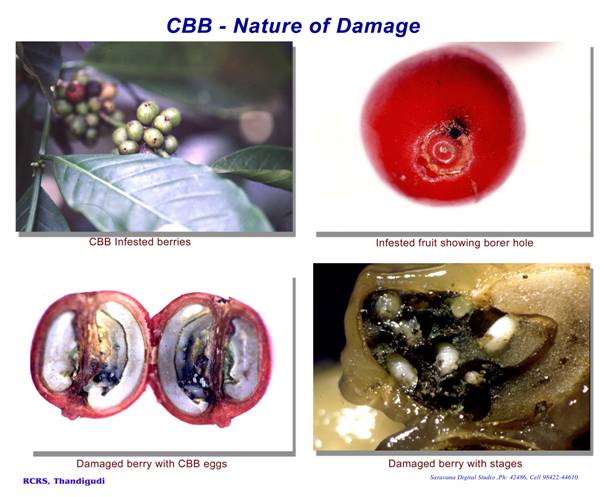 |
Identification of the pest
- Adult - small black beetle with a sub cylindrical body covered with thick hairs.
- Males are smaller.
|
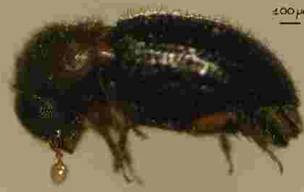 |
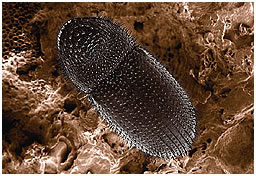 |
| Coffee berry borer adults |
|
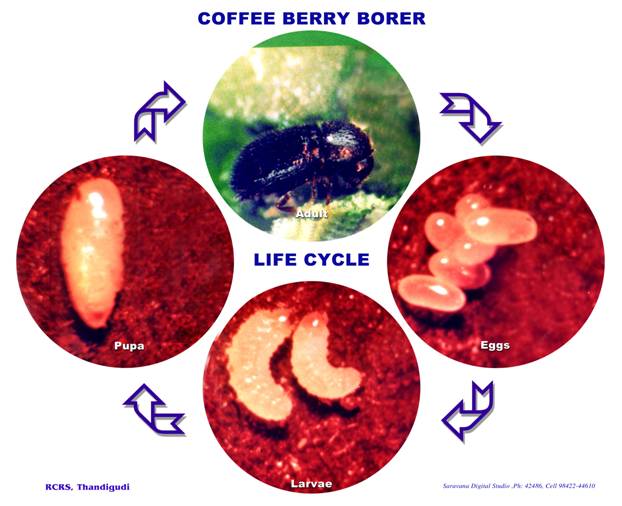 |
Management
- Proper adoption of cultural practices and phytosanitary measures important for management of coffee berry borer.
- Transportation of infested coffee to uninfected areas is the main reason for spread.
- Crop bags should be fumigated before delivery to estates to avoid cross infestation.
- Timely harvest
- Gleaning - spreading gunny bags or polythene sheets on the ground after picking the berries - minimize gleaning.
- Maintain optimum shade and good drainage.
- Dipping infested berries in boiling water for 2-3 minutes kills all the stages inside.
- Drying of coffee beans – prevents breeding of beetles in stored coffee based on moisture content level.
- Arabica (10% moisture content) - 16kg/lit
- Roubsta (11% moisture content) - 18kg/lit
- Instal attractant trap to collect and kill the beetles
- Instal multiple funnel trap and pitfall trap to collect and kill the adults
- Chlorpyriphos is also effective in controlling the beetle.
- Field release of Cephalonomia stephendarix and phymastichus coffea for effective control these pests.
- Applications of white muscardine fungus, Beauveria bassiana effectively reduce the borer attack
- (Note: Spraying on ripe berries may not be useful. The time of application could be about 120-150 days after flowering (August – September for Arabica and September – October for Robusta).
Field application of Beauveria bassiana
- Mix 500 ml of groundnut oil with 500 ml of any agricultural wetting agent thoroughly.
- Add this suspension to 20 l of water and three bags of Beauveria culture the above solution mix well and strain through a muslin cloth.
- Application of spore suspension on the infested coffee bushes using a bakpak sprayer, targeting the berries.
- After 5 days application spores germinate and kill the insect.
|
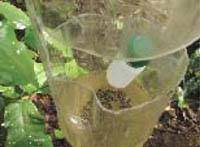 |
Attractant trap |
|
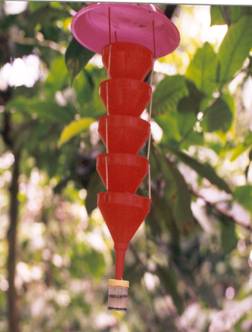 |
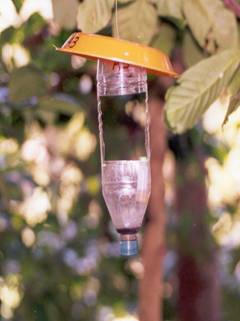 |
Multiple funnel trap |
Pitfall trap |
|
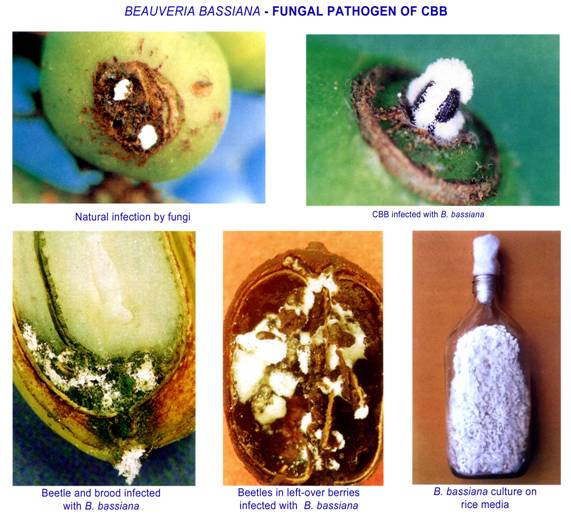 |







